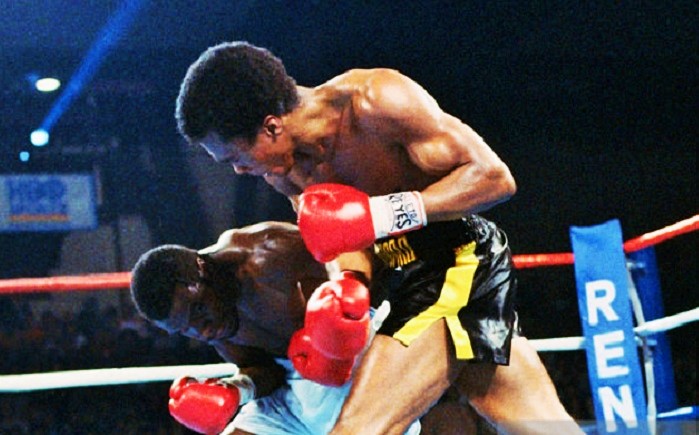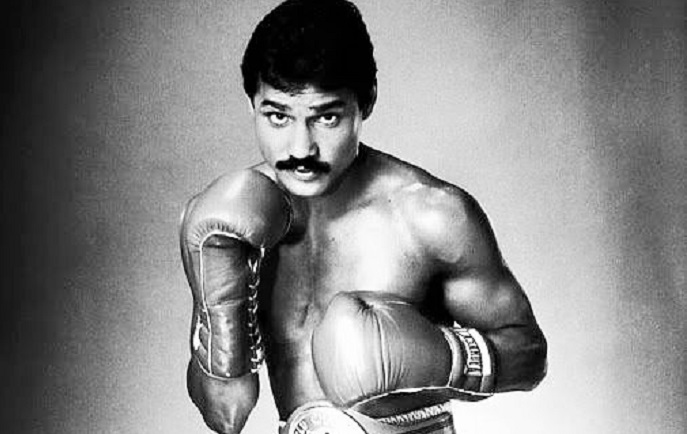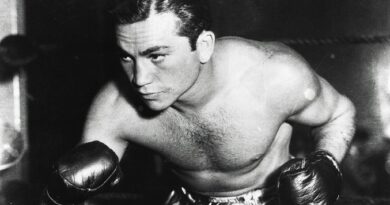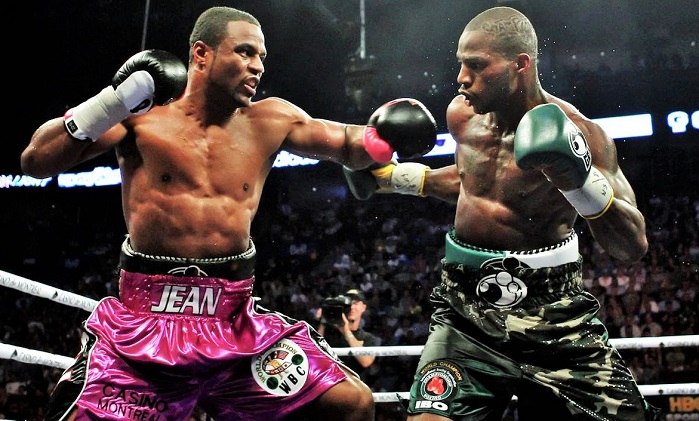Feb. 15, 1982: Leonard vs Finch
It is 1982 and Sugar Ray Leonard is the king of not only the welterweight division, but of the entire sport of boxing. No other fighter is as revered or celebrated by the media; most importantly, no other boxer is as big an attraction and worth as much money. Having vanquished his most daunting opponents in Roberto Duran and Thomas Hearns, Leonard stood alone at the pinnacle. Now was the time to cash in.
Thus, it didn’t really matter who Leonard faced in his first match since his historic win over Hearns six months previous; Bruce Finch, rated number four in the world by the WBC sufficed, while at the same time posing little threat. It also didn’t matter where the bout took place. Reno, Nevada? A city that hadn’t seen a championship fight in some 80 years? Sure, why not. As long as someone came up with a cool $1.3 million for the champion, the fight was on.

This was, everyone knew, a “tune-up” bout, a title defense to keep Leonard busy and sharp while everyone waited for another huge money ‘superfight’ to materialize with Hearns. Or, maybe with Marvin Hagler. Or Aaron Pryor. “I want to keep busy,” said Ray. Little did anyone know that instead of a prelude to bigger and better things, Leonard vs Finch would be Ray’s last fight for a long time to come.
There was no suspense about this match-up and Leonard didn’t even try to dignify any attempts at building any. The catch-phrase for the match was “Reno’s Got It,” and at the pre-fight press conferences Ray couldn’t resist adding, “And Bruce is going to get it.”
“This is your chance to fight for the title,” he told Finch to his face. “But you’re not going to win it.”
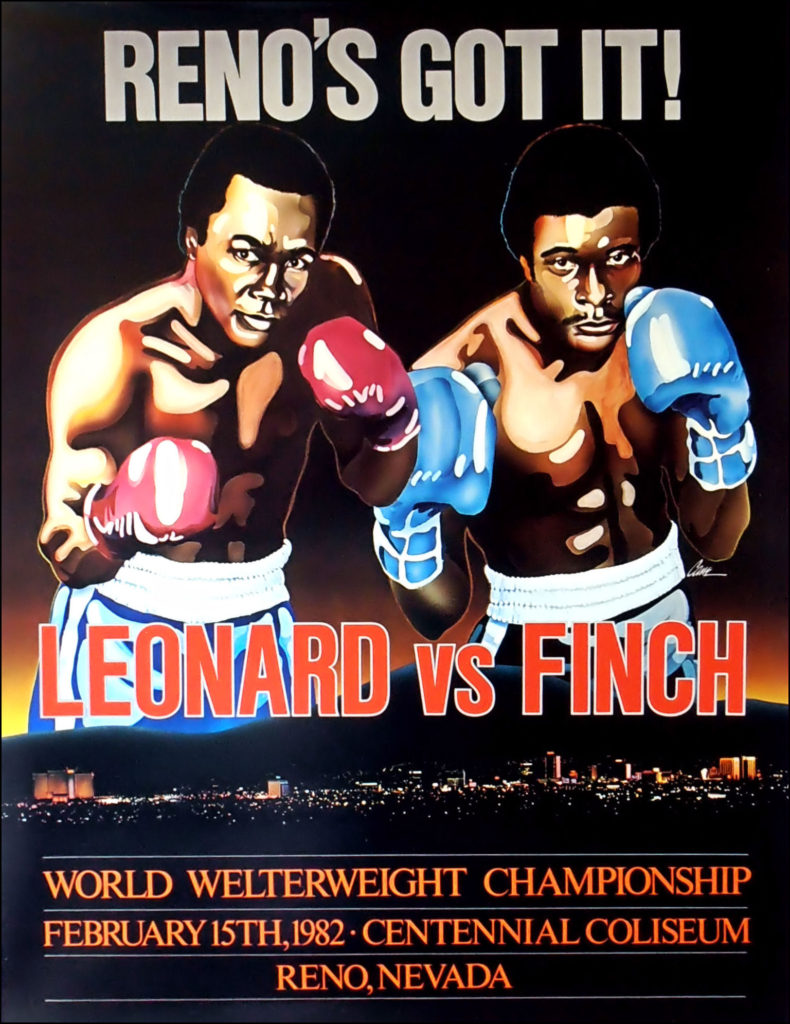
One imagines the challenger himself likely had difficulty disagreeing with Leonard, especially when he reflected on the fact that he had three losses on his record, to Hearns, Pete Ranzany and Larry Bonds. All three had suffered defeat to Sugar Ray.
But give Finch credit: he tried to make a fight of it and in fact won the opening round. Pressing forward, the challenger threw and landed some heavy shots to Ray’s midsection as the champion took his time and didn’t really get going until the final minute of the round. Just before the bell Leonard connected with a sharp left hook to the head. “He came out fast and I was surprised,” said Leonard afterwards. “Few guys start that fast against me.”
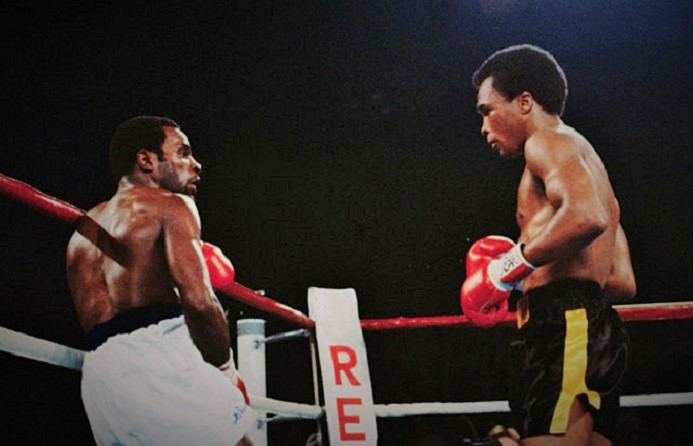
In the second the challenger continued to press and for the first half of the round he was the more effective of the two, landing a solid counter right hand and then forcing Leonard to the ropes. But then, suitably warmed up, the champion brought his amazing hand-speed to the fore, unleashing some vicious left hooks and a clean left-right combination that sent Finch to the canvas. The challenger beat the count but, obviously dazed, collapsed a second time. He again climbed to his feet and barely survived the final half minute of the round to stagger to his corner. The match, for all intents and purposes, was over.
Again, give Finch credit: he did his best to make it a fight in the third, exchanging heavy punches with a boxer who was clearly levels above him. But then three hard rights followed by a left uppercut put the challenger on the canvas a third time. Referee Mills Lane had seen enough and the mismatch was stopped at 1:50 of the round. Reno’s first title match since Jack Johnson humiliated James J. Jeffries back in 1910 had been nothing more than a rather brief exhibition of Leonard’s pugilistic gifts, a contest akin to a race between a Ford Pinto and a Ferrari.
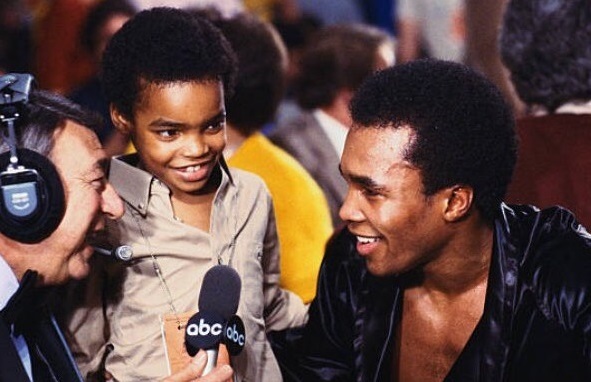
“Once I hurt a guy,” commented Leonard, “the rest is history.”
But what Ray didn’t know was that his career was almost history as well. Three months later he underwent surgery to repair a partially detached retina in his left eye, the same eye which had been seriously damaged in his battle with Thomas Hearns. For the next five months he pondered whether or not he should continue his boxing career and in November he announced the first of several retirements. Sugar Ray Leonard’s time at the very pinnacle of his profession proved much shorter than anyone had anticipated. — Robert Portis

